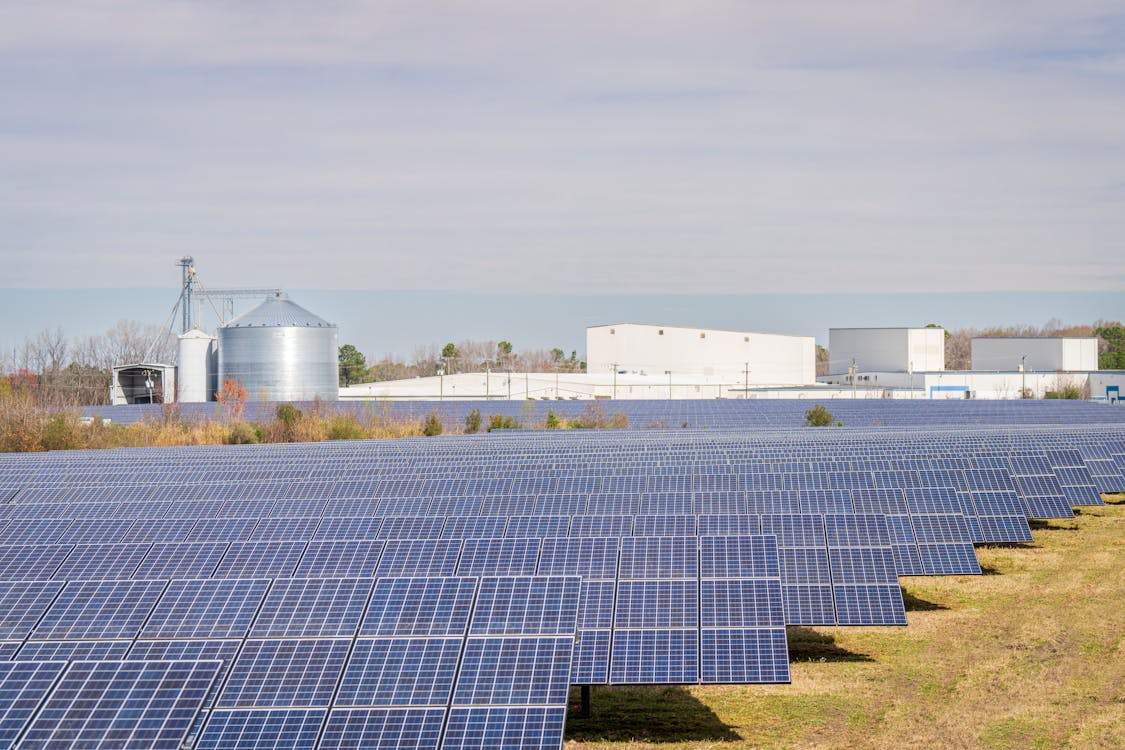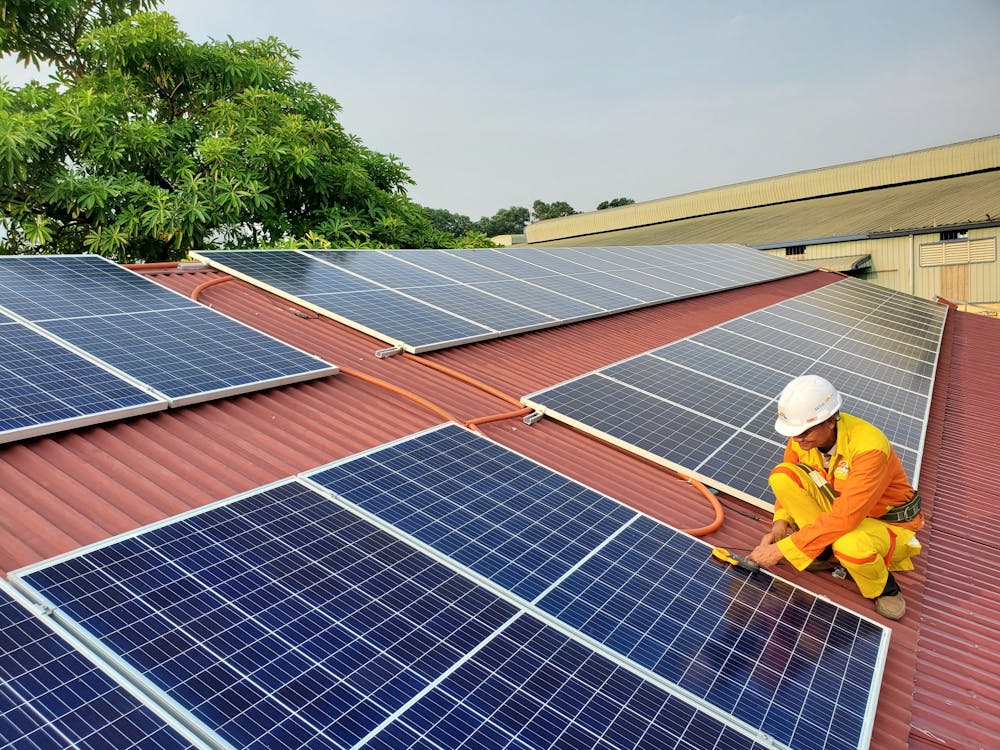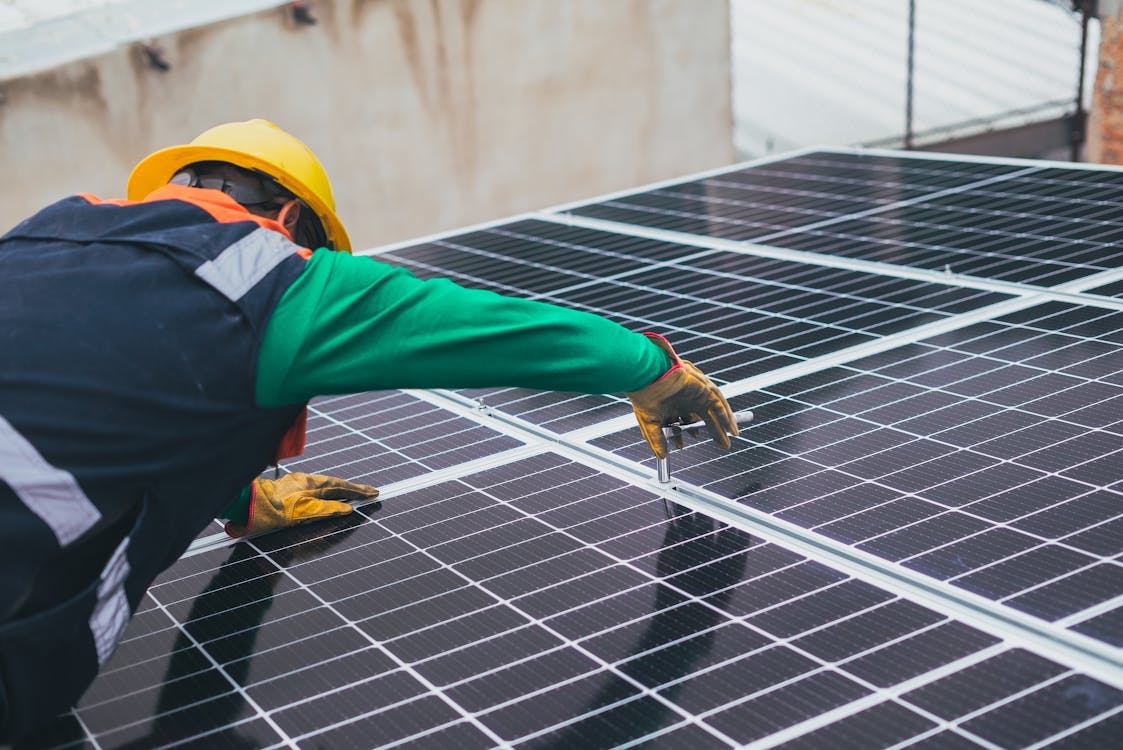Commercial Solar Insurance in Kenya: Safeguarding Your Business Investment

Table of Contents
- Introduction to Commercial Solar Insurance in Kenya
- Difference Between Residential and Commercial Solar Insurance
o Size and Complexity of Installations
o Business Interruption Coverage
o Higher Policy Costs
o Increased Liability Coverage - Benefits of Commercial Solar Insurance
o Protection Against Physical Damage
o Business Continuity
o Liability Coverage
o Theft and Vandalism Coverage - Add-Ons Available for Commercial Solar Insurance
o Battery Storage Coverage
o Mechanical and Electrical Breakdown
o Extended Warranties
o Employee Injury Coverage - Government Incentives for Solar Energy in Kenya
o Tax Incentives
o Land Rate Reductions
o Improved Property Value - Financing Options for Commercial Solar Installations
o Bank Loans and Asset Financing
o Power Purchase Agreements (PPAs)
o Leasing Options
7. What to Look for in Commercial Solar Insurance Policy Documents
o Exclusions
o Coverage Limits
o Liability Coverage
o Reinstatement Costs
o Deductibles
8. Kenyan Companies Embracing Commercial Solar Installations
o Safaricom
o Kapa Oil Refineries
o Kenya Tea Development Agency (KTDA)
9. How Much Does Commercial Solar Insurance Cost?
10. Conclusion: Protect Your Solar Investment with Kifedha
As Kenya continues its shift toward renewable energy, businesses are increasingly investing in solar power to reduce energy costs, enhance sustainability, and minimize their environmental impact. For commercial enterprises, investing in solar power isn’t just about saving on utility bills—it’s about long-term sustainability and increasing property value. However, to protect this valuable investment, commercial solar insurance is essential.
What Is Commercial Solar Insurance?
Commercial solar insurance is a specialized form of insurance designed to protect solar energy systems installed for business purposes. These insurance policies cover various risks, such as damage to solar panels, inverters, batteries, theft, fire, and other potential hazards. Given the significant investment required for commercial solar installations, having the right insurance coverage ensures that businesses don’t face huge financial losses in case of damage or system failure.
2.Difference Between Residential and Commercial Solar Insurance

While residential solar insurance covers systems installed for personal or household energy use, commercial solar insurance focuses on solar installations for business or industrial purposes. Here are some key distinctions:
1.Size and Complexity of Installations:
Commercial solar systems are generally larger and more complex than residential setups. They often involve extensive infrastructure, such as industrial inverters and large-scale battery storage, which require higher coverage.
2. Business Interruption Coverage:
A key feature of commercial solar insurance is business interruption coverage, which compensates businesses for lost revenue when a solar system fails or becomes inoperable due to an insured event.
3. Higher Policy Costs:
Due to the scale of commercial solar installations, the premiums for these insurance policies tend to be higher compared to residential solar insurance.
4. Increased Liability Coverage:
Commercial solar policies typically include greater liability coverage, especially if the business sells excess electricity back to the grid or uses solar to power multiple locations.
3.Benefits of Commercial Solar Insurance
Investing in commercial solar insurance offers a range of benefits, including:
1.Protection Against Physical Damage:
Your solar system is protected from risks such as damage caused by natural disasters (storms, hail, lightning), theft, vandalism, or fire.
2.Business Continuity:
If your solar system fails, leading to a loss of power, your business could face downtime. With business interruption coverage, you’ll be compensated for lost revenue during the system’s downtime.
3.Liability Coverage:
If your solar panels cause damage to neighboring properties or injure someone due to installation or operational issues, the insurance covers third-party claims and damages.
4.Theft and Vandalism Coverage:
Solar panels, especially in remote areas, are at risk of theft. Commercial solar insurance covers the cost of replacing stolen or vandalized equipment.
4.Add-Ons Available for Commercial Solar Insurance.
Some add-ons and optional coverages are available to customize your commercial solar insurance plan:
4.1 Battery Storage Coverage:
This add-on covers the solar batteries that store excess energy. In case of battery damage or malfunction, the insurer will cover repair or replacement costs.
4.2 Mechanical and Electrical Breakdown:
This coverage ensures that if your solar system suffers a mechanical or electrical failure, the repairs are covered, minimizing your downtime.
4.3 Extended Warranties:
Many insurers offer options to extend the manufacturer’s warranty on key system components like inverters and batteries.
4.4 Employee Injury Coverage:
Solar installations on commercial properties can sometimes pose a risk to employees. Insurance may include coverage for work-related injuries sustained during the operation or maintenance of the solar system.
5.Government Incentives for Solar Energy in Kenya
The Kenyan government is committed to promoting renewable energy sources and has provided several incentives to encourage the adoption of solar power. These incentives make solar installations even more attractive for businesses:
5.1 Tax Incentives:
Businesses investing in solar installations benefit from VAT exemptions and reduced import duties on solar panels, batteries, and inverters. This significantly lowers the initial cost of setting up a solar power system.
5.2 Land Rate Reductions:
In some counties, businesses that adopt solar energy can benefit from reduced land rates as part of efforts to encourage sustainable practices.
5.3 Improved Property Value:
Commercial properties with solar installations often see an increase in property value. Solar-powered businesses attract eco-conscious investors and tenants, making the property more desirable.

6.Financing Options for Commercial Solar Installations
The high upfront cost of commercial solar systems can be a barrier for many businesses. However, several financing options are available in Kenya:
6.1 Bank Loans and Asset Financing:
Many banks and financial institutions offer loans specifically for solar installations, allowing businesses to spread the cost over time.
6.2 Power Purchase Agreements (PPAs):
With a PPA, a third-party investor installs and maintains the solar system, and the business agrees to buy the generated electricity at a fixed rate. This allows businesses to enjoy solar energy benefits without the hefty upfront costs.
6.3 Leasing Options:
Leasing a solar system allows businesses to enjoy the benefits of solar energy without having to own the system. Instead, businesses pay a monthly fee to lease the equipment.
7.What to Look for in Commercial Solar Insurance Policy Documents
Before selecting a commercial solar insurance policy, it’s crucial to review the following aspects:
7.1 Exclusions:
Carefully review what is excluded from coverage, such as wear and tear or damages caused by improper installation.
7.2 Coverage Limits:
Ensure the coverage amount aligns with the total value of your solar system, including additional equipment such as inverters, transformers, and batteries.
7.3 Liability Coverage:
If your business sells electricity back to the grid or operates in a high-traffic area, you’ll need to ensure that liability coverage is adequate.
7.4 Reinstatement Costs:
Confirm whether the policy covers the full cost of reinstating the system if it is damaged beyond repair.
7.5 Deductibles:
Understand how much you’ll be required to pay out-of-pocket in the event of a claim, and ensure the deductible aligns with your business's risk tolerance.
8.Kenyan Companies Embracing Commercial Solar Installations

Several Kenyan businesses have taken the lead in adopting solar energy solutions, setting an example for others:
- Safaricom:
The telecommunications giant has embraced solar energy across its network, reducing operational costs and carbon footprint. - Kapa Oil Refineries:
Kapa Oil has invested in solar energy to power its manufacturing plants, making significant strides in sustainability. - Kenya Tea Development Agency (KTDA):
KTDA has installed solar power systems in its tea factories, lowering electricity costs and enhancing operational efficiency.
9.How Much Does Commercial Solar Insurance Cost?
The cost of commercial solar insurance depends on the size and complexity of the solar system, as well as the level of coverage. On average, businesses can expect to pay between KES 50,000 to KES 200,000 annually, depending on factors such as equipment value, location, and additional coverage options.
Conclusion: Protect Your Solar Investment with Kifedha
As more businesses embrace solar power for its financial and environmental benefits, it’s essential to safeguard this valuable investment. Kifedha offers tailored commercial solar insurance solutions to protect your system against risks such as damage, theft, and business interruption.
To learn more about the best commercial solar insurance coverage for your business, contact us through our contact form, call us on +254791573231 or visit one of our branches across Nairobi, Kiambu, Machakos, and Kajiado counties to explore your financial opportunities.




Comments ()